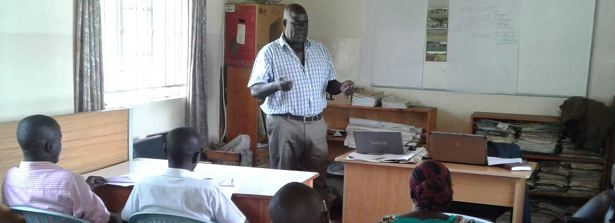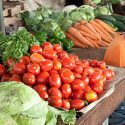Baseline survey in the Obunga and Nyalenda slums of Kisumu County, Kenya

During the rainy month of March in 2017, the Women Food Entrepreneurs research project conducted a baseline survey in the city slums of Kisumu. The focus of the study was to measure the quality of food and nutrition consumed in slum households so that the project research team can understand the initial nutritional conditions for the population in focus. This baseline survey also sought to highlight linkages to women entrepreneurship, the food value chain, and soil and water quality. Taking a baseline allows the researchers to see any differences at the end of the project. They are interested to know if soil improvements, food processing and business enhancement will have an impact on the food and nutrition quality of slum households in the locations where the research is taking place.
The survey was conducted by asking a set series of questions of households from two slums in Kisumu City, namely: Nyalenda and Obunga. In Nyalenda, the household survey was conducted by targeting 60 respondents from slum farmers’ households in the Nyalenda A and B areas. These are a mixture of high-density and low-density population areas. In addition, 30 peri-urban farmer respondents were also targeted around Nyamthoe. In the high-density Obunga slums, an additional 30 respondents were identified. In the chosen sites, households to be surveyed were selected using a systematic simple random sampling method based on population information from local chiefs (leaders) and proximity to the target farms. The households are all situated in non-planned settlement areas; hence systematic simple random sampling was preferred to enable equal representation. A total of 120 households were sampled and household heads or those in charge of food issues in their households were interviewed from every eleventh household.
In addition to the survey, key informants interviews were carried out with various different actors from the state, non-governmental organizations (NGOs) and community-based organizations. Community-group leaders involved in food production, marketing, handling, processing and packaging of food were also interviewed as key informants. The baseline study was concluded by conducting two focus group discussions, each with ten participants. These participants included food producers, marketeers/traders, water and sanitation experts, public health/food handlers and value addition groups.
During the baseline survey exercise, the locations of the surveyed households and other key locations were mapped and geo-referenced using GPS, with the aim of producing a geo-referenced map during subsequent data analysis. All the collected data is being analysed – the findings will enrich the rest of the research in this project.






